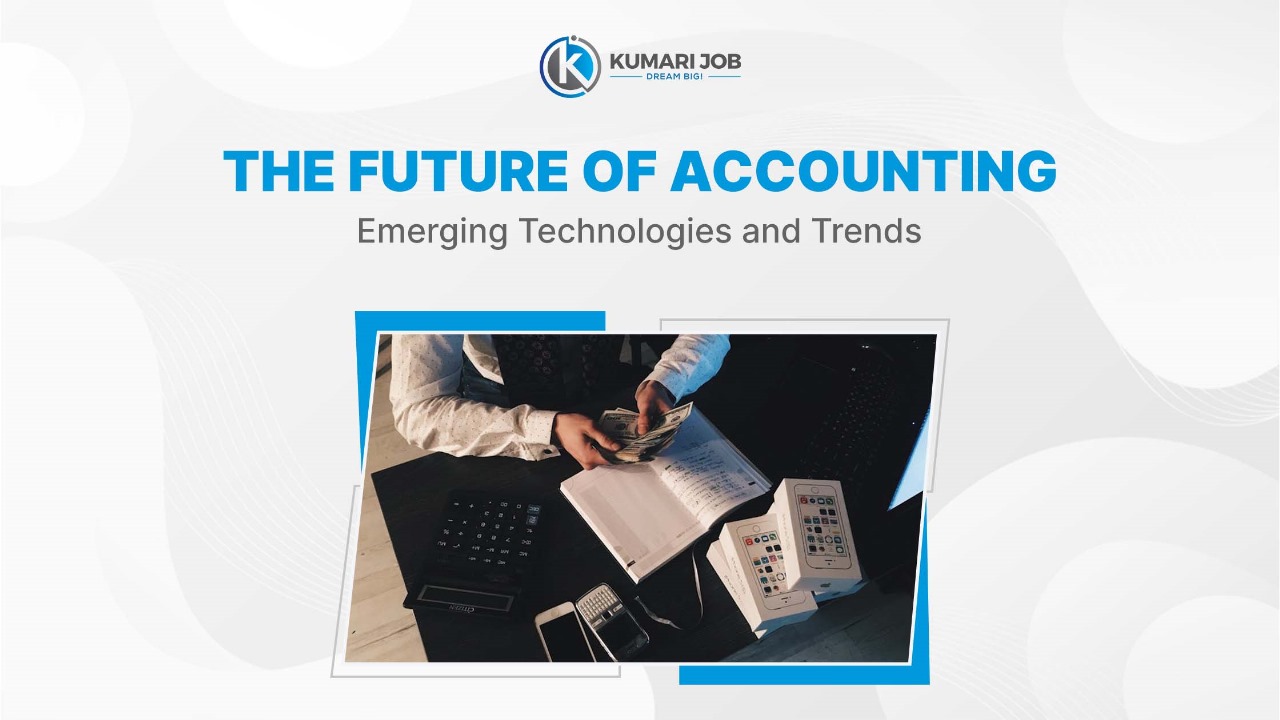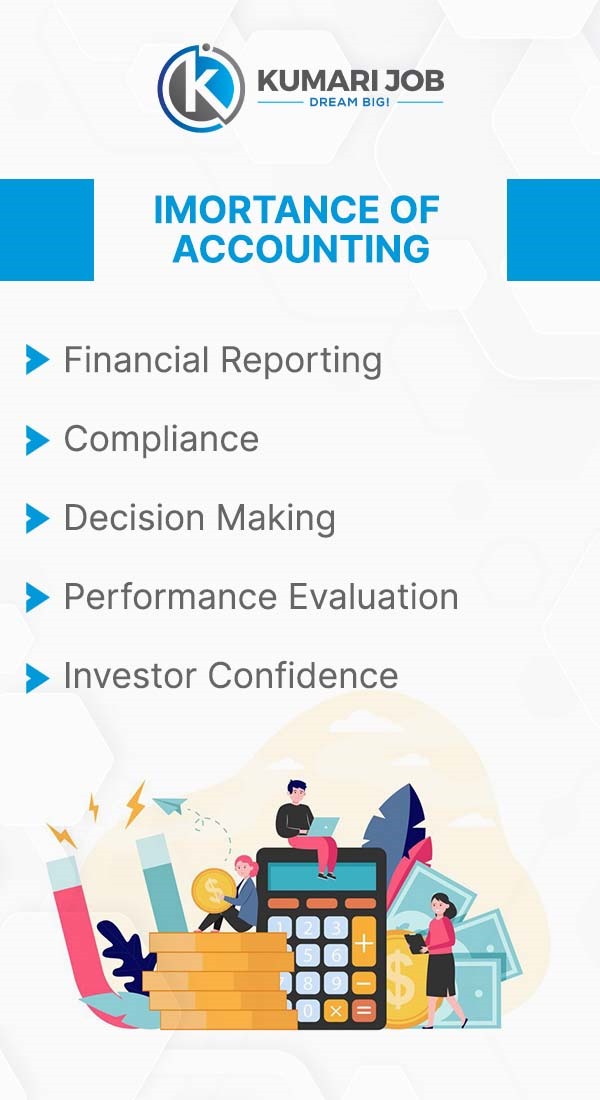
What is Accounting?
Accounting is the process of recording the financial transactions of a business. The accounting process includes summarising, analyzing, and reporting these transactions to oversight agencies, regulators, and tax collection entities. The financial statements used in accounting are a concise summary of financial transactions over an accounting period, summarizing a company's operations, financial position, and cash flows.
Accounting provides a clear picture of the financial health of your organization and its performance, which can catalyze resource management and strategic growth. Accounting is like a powerful machine where you input raw data (figures) and get processed information (financial statements). The whole point is to give you an idea of what’s working and what’s not working so that you can fix it.
What is the purpose of accounting?
Accounting is a crucial function in businesses, with small firms primarily managed by bookkeepers or accountants. Larger companies may have finance departments with a unified accounting manual.
Reports from various streams, such as cost and managerial accounting, aid management in making informed decisions. Financial statements summarize a company's operations, financial position, and cash flows over time. Professional accounting designations are the result of years of study, rigorous examinations, and practical accounting experience.
What is the Salary of Accountant in Nepal?
The salary of accountants in Nepal is typically between Rs. 20,000 and Rs. 200,000+ per month, depending on their experience, qualifications, and job role. Here's a general breakdown:
- Entry-Level Accountants: Fresh graduates or junior accountants typically earn between Rs. 15,000 to Rs. 25,000 per month. This can vary based on whether the individual has completed an internship or holds certifications like CAP I or II from ICAN.
- Mid-Level Accountants: With 2–5 years of experience, salaries usually range from Rs. 30,000 to Rs. 50,000 per month, especially if they handle responsibilities like tax filing, payroll, or internal audits.
- Senior Accountants and Managers: Professionals with over 5 years of experience or those in senior roles (e.g., Finance Manager, Senior Accountant, or Audit Officer) can earn between Rs. 60,000 to Rs. 100,000+ per month, particularly in banks, large corporations, or international NGOs.
- Certified Chartered Accountants (CA): Accountants who have passed the CA qualification (from ICAN or abroad) can expect starting salaries of Rs. 70,000 to Rs. 150,000+ per month, with potential for much higher earnings depending on the organization.
Overall, accounting jobs remain a stable and well-paying career path in Nepal, with growing demand for skilled professionals as more businesses adopt digital and global financial standards.
In this blog
Accounting Trends
Here are the top 10 accounting trends to watch out for and implement in your firm.
Let’s look at these a little closer.
1. Remote Workforce
The accounting industry is increasingly adopting remote work due to the pandemic and cloud-based software implementation. This shift offers benefits like increased flexibility and reduced overhead costs. To succeed, firms need the right technology solutions, such as virtual communication tools and secure online data storage. To stay competitive, accounting firms should implement a remote work policy and provide a flexible, customizable work environment to retain talent.
2. Data Security
Accounting firms must protect themselves from cyber threats by offering cybersecurity training to employees, using cloud-based software for secure online data storage, and implementing two-factor authentication systems. This will help protect their valuable assets, and customers' financial information, and reduce risk exposure by ensuring only authorized users can access sensitive data.
3. Advisory Accounting Services & Holistic Advisors
Accounting firms must expand beyond traditional bookkeeping and tax preparation services to offer advisory services, focusing on new technologies and operations software management. This allows CPAs to bridge the gap between accountants and other financial advisors, offering more accurate insights and valuable advice. Adapting to this trend will increase revenue and allow firms to focus on cash flow management or technology.
4. Automated Processes & Artificial Intelligence
Accounting firms are increasingly relying on automation to stay competitive. Sage predicts that 58% of accounting professionals will automate tasks using artificial intelligence within the next three years. This can be achieved through software like robotic process automation (RPA), which uses AI bots to complete repetitive tasks quickly and accurately. This will save time and money, and free up employees to focus on higher-value activities. As AI evolves, it will also perform more complex functions, such as identifying fraudulent transactions and managing customer relationships. Automation of repetitive accounting tasks is becoming increasingly common, with some processes being automated.
5. Value-Based Pricing
Value-based pricing is transforming the accounting industry as clients seek accountants who provide tailored services rather than hourly rates. With automation, accounting firms should implement clear billing policies like fixed fees or project rates to avoid confusion. This pricing provides certainty, prevents surprises, and encourages efficiency, ultimately leading to increased profit.
6. Blockchain Technology
Blockchain technology, a distributed ledger, is expected to revolutionize the accounting sector by reducing costs, providing accurate ownership and history of assets, and reducing the need for third-party intermediaries. US firms are projected to spend $1.1 billion on blockchain by 2024. It could also aid in automatic invoicing, payments, and audit trails, saving time and money. However, there are risks associated with blockchain implementation.
7. Big Data
As data becomes more complex, accounting firms need to hire individuals with strong data analytics skills to manage and analyze it effectively. Big data, the large volume of data collected from various sources, can help identify future trends and correlations, providing valuable insights and recommendations. By analyzing massive datasets, accountants can predict future financial consequences and make immediate plans. CPAs can now focus on planning, control, and process analysis.
8. Online Marketing
Accounting firms must utilize digital marketing strategies to engage with their audience and build relationships. Social media platforms, a well-designed website, and email marketing are essential tools for sharing valuable content and interacting with clients. These strategies help accountants grow their network, build relationships, and demonstrate their expertise in the digital age.
9. Data Analytics and Forecasting
The accounting industry is expected to see a significant increase in demand for data specialists, who can use advanced analytics and forecasting techniques to identify operational inefficiencies and manage risks. This will enable businesses to make informed decisions, optimize production, and adjust manufacturing capacity. Investing in data science training programs and hands-on experience with tools like SQL, Excel, and Python will benefit accountants' science.
10. Cloud-Based Accounting Software
Businesses are increasingly adopting cloud-based accounting systems, which enable data access from any device with an internet connection, making it ideal for remote employees. These systems also facilitate file sharing and collaboration, saving time and costs. They also create workflows, reducing the need for repetitive tasks, thereby increasing accessibility and security.
Know more about Accounting: https://www.kumarijob.com/blog/career-tips/advanced-accounting
The Future of the Accounting Profession and Jobs
The future of accounting will see a greater adoption of increasingly sophisticated technologies. Whether AI, automation, data analytics, or cloud computing, these technologies will tremendously enhance productivity and reinforce the need for accountants to improve their soft skills. But as the accountant role evolves into more of a strategic advisor, there are several points to keep in mind:
- Technology will support accountants, not replace them
- Time management, accuracy, productivity, and security will all improve
- Accountants will be able to provide better insights
- The most effective accountants will be those who are open to change
Will accountants be replaced by technology?
No, but their roles will change over time. Accountants should embrace technology to remain relevant in the industry. This includes staying up-to-date with technological trends, optimizing and adapting current accounting software to meet the needs of the firm, and being open to accepting and learning advanced technologies.
How do big companies use AI in accounting?
Big firms around the world have invested heavily in AI-powered tools and solutions to provide clients with more advanced and insightful services. Here’s a glimpse of how they use AI in accounting:
- Predictive analytics: The firms utilize AI-driven predictive analytics to help clients make data-driven decisions. This includes forecasting financial trends, identifying potential risks, and optimizing strategies for growth.
- Auditing: AI-powered audit tools analyze large volumes of financial data quickly and accurately. The big firms use these tools to identify anomalies and potential issues, improving the audit process’s efficiency and accuracy.
- Tax compliance: AI assists in automating complex tax compliance tasks. It helps the big firms firms keep up with ever-changing tax codes and regulations while minimizing errors.
- Client insights: AI-driven platforms provide deeper insights into client needs and behaviors. This allows the firms to tailor their services more effectively and build stronger client relationships.
How do small enterprises use AI in accounting?
Smaller accounting firms might not have the same resources as the Big 4, but they are also embracing AI to stay competitive and offer better services:
- Bookkeeping automation: AI-powered software can automatically categorize expenses, reconcile accounts, and generate financial reports. This saves time and reduces the risk of manual errors for firms.
- Client communication: Chatbots powered by AI can handle routine client inquiries, freeing up staff to focus on more complex issues. These chatbots can provide 24/7 support, enhancing client satisfaction.
- Data analysis and back office functions: AI tools enable smaller firms to analyze client data more efficiently. They can offer insights into cost-saving opportunities, financial planning, and risk management.
Fast and accurate tax research: Firms use AI-powered algorithms in tax research tools to return data from human-edited, tax-specific content. This provides authoritative answers from trusted sources questions quickly and accurately.
Know about accounting skills: https://www.kumarijob.com/blog/career-tips/accounting
How does AI in accounting impact workflow?
The impact of AI on workflow in accounting firms is massive. It enables accountants to transition from being data processors to trusted advisors. Here are some of the many ways artificial intelligence is transforming workflows:
- Time savings: Mundane tasks like data entry and reconciliation are automated, allowing accountants to allocate more time to strategic activities.
- Improved client service: AI helps accountants provide proactive, data-driven advice, which fosters stronger client relationships.
- Scalability: AI enables firms to handle more clients and complex tasks without significantly expanding their workforce.
Rusty Hale, owner of Hale CPA, said, “ChatGPT is wonderful, in my opinion, because it brings up a lot of things you maybe haven’t thought about. We’ve already used it for some tax research, and we used it for some procedures. For example, we asked it what a good checklist for onboarding a client was, and it came up with some really good thoughts.”
Still, the technology is new, and answers from ChatGPT and related AI technology require extensive fact-checking.
How to incorporate AI in your accounting workflows
The future of AI for accountants should spark plenty of excitement for finance teams. It holds loads of potential for getting more (and better) work done with less.
But to reap the benefits, it’s crucial to determine which accounting processes can and should be automated or augmented with AI.
Properly incorporating AI into your accounting workflows involves a systematic assessment of your current workflows:
- Workflow analysis: Begin by thoroughly understanding your existing accounting processes. Document each step involved in tasks, from data entry to financial reporting.
- Identify manual and repetitive tasks: Highlight tasks that are repetitive, manual, time-consuming, or prone to human error. These are prime candidates for automation or augmentation with AI.
- Assess data volume and complexity: Consider the volume and complexity of data involved in each process. Tasks that require handling large datasets or complex calculations are often suitable for AI assistance.
- Evaluate data variability: Determine whether the data you work with follows consistent patterns or if it exhibits variability. AI is particularly useful in handling data with variable patterns.
- Analyze task suitability: Assess whether a task requires human judgment, interpretation, or discretion. Tasks that involve strategic decision-making or complex analysis may benefit from AI support rather than full automation.
Then, based on your assessment, prioritize processes that stand to benefit the most from automation or AI augmentation.
Here are some of the most impactful ways that AI can fit into your daily workflows:
- Accounts payable/receivable: Streamline accounts payable and receivable by automating the extraction of data from invoices, verifying accuracy, and routing them for approval or payment.
- End-of-month reconciliations: Automate end-of-month reconciliations by matching transactions, identifying discrepancies, and generating reconciliation reports, reducing manual effort and errors.
- Financial reporting: Analyze large datasets swiftly to generate customized financial reports, graphs, and visualizations.
- Budgeting and forecasting: Create more accurate budgets and forecasts by analyzing historical data and considering various scenarios.
- Fraud detection: Put AI on the frontlines of fraud detection with AI-powered algorithms to monitor transactions and financial data.
- Email communication: Use AI to draft, edit, respond to, or even summarize emails to tame your inbox.
- Workflow automation: Automate approvals, notifications, and document management, reducing the need for manual intervention across your workflows.
- Client service: Use AI-driven chatbots or build your virtual assistants to provide 24/7 support to clients, answering common questions, and potentially assisting with account inquiries.
Conclusion
Accounting professionals must adapt to emerging technologies like AI, automation, and data analytics to stay ahead in the evolving landscape. Embracing these advancements, while balancing professional expertise, is key to thriving in the future of accounting.
For those seeking accounting careers, Kumari Job offers a variety of job opportunities across Nepal. Additionally, accounting training in Nepal provides the skills needed to succeed in this dynamic field. Start your journey with Kumari Job or enhance your expertise through specialized training.
Looking for more than just accounting roles? Kumari Job also features the latest UN jobs in Nepal and vacancies in top national and international organizations. Explore your options today!
Frequently Asked Questions
Accounting is a term that describes the process of consolidating financial information to make it clear and understandable for all stakeholders and shareholders. The main goal of accounting is to record and report a company's financial transactions, financial performance, and cash flows.
Bookkeeping automation: AI-powered software can automatically categorize expenses, reconcile accounts, and generate financial reports. This saves time and reduces the risk of manual errors for firms.
Currently, AI technology cannot replace human accountants, all four leaders agreed. "Right now, a machine cannot take responsibility for an audit opinion
Take a look at the three main rules of accounting:
- Debit the receiver and credit the giver.
- Debit what comes in and credit what goes out.
- Debit expenses and losses, credit income and gains.













Loading Comments...